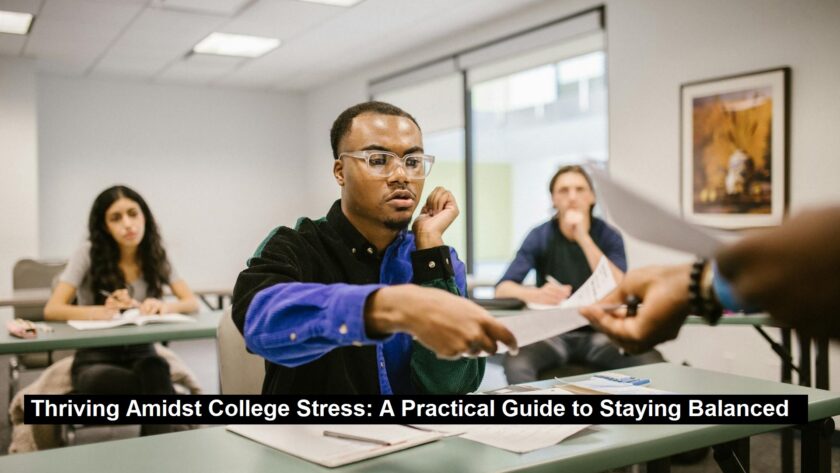College life can be an exciting journey, but it’s often filled with stressors that can be difficult to manage. From the pressure of exams and uncertainty about future careers to conflicts with roommates and financial struggles, the demands placed on students can quickly become overwhelming. The added challenge of newfound independence only adds to this complex mix, pushing many students to their limits.
However, stress doesn’t have to dominate the college experience. Our infographic, “Navigating College Stress: Your Ultimate Guide,” delves into the core issues students face and offers actionable solutions to help manage stress. This guide is not only helpful for students themselves, but also for concerned parents and those new to the college environment who need a roadmap for overcoming the challenges of higher education.
Thankfully, many educational institutions have recognized the growing need for mental health support and have responded by offering a range of services. Accommodating different learning styles can significantly reduce college stress by allowing students to learn in ways that are most effective for them, improving academic performance and overall well-being. From Chicago’s community colleges to universities across the country, counseling services and therapy programs are increasingly available to students in need. But institutions can only do so much—students must also take control of their own well-being. By incorporating simple stress-relief practices like adequate sleep, regular exercise, and a nutritious diet, students can reduce their stress levels and improve both their mental and physical health.
Read: Navigating The Business Landscape: Crafting A CV That Highlights Your Strengths
Failing to adopt these healthy coping strategies, however, can lead students down a dangerous path. Focusing on Career Development can help alleviate college stress by providing students with a sense of purpose and direction, reducing uncertainty about the future. Some may turn to harmful outlets such as substance abuse, excessive alcohol consumption, or toxic relationships, all of which can worsen their stress and lead to further challenges.
Managing The College Stress Epidemic was offered by Generations College, a community college in Chicago
Let’s empower students with the tools they need to thrive, not just survive. Explore the resource highlighted alongside this post to discover how students can achieve balance, maintain resilience, and create a healthier, more fulfilling college experience. The College Search process, while exciting, can be a significant source of stress for high school students due to factors like academic pressure, financial concerns, and the fear of making the wrong decision.




